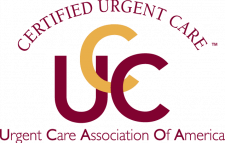An allergic reaction is an abnormal immune response to a foreign substance. These substances can be anything from food and medications to environments. When your skin comes in contact with these substances, it can cause mild symptoms like skin irritation, hives, watery eyes or sneezing.
For some, the allergic reaction can be much more severe. Anaphylaxis is a severe allergic reaction that can be life-threatening if left untreated. Its symptoms include shock, a sudden drop in blood pressure and difficulty breathing.
If you or someone you know is experiencing signs of anaphylaxis, call 911 or your local emergency services immediately.
How to treat a mild allergic reaction
Most mild allergic reactions can be treated with over-the-counter (OTC) antihistamines, topical creams that contain corticosteroids, and decongestants. Food allergies are often more serious, as they can potentially close a person’s airway. Food-related allergic reactions may require prescription medications like oral cromolyn or epinephrine. Here is how common OTC products can help relieve your mild allergic reactions:
- Antihistamines
Antihistamines help prevent or alleviate symptoms like hives by blocking the histamine receptors so the body is unable to react to the allergens. These medications are often used to treat allergies, hay fever, conjunctivitis and reaction to insect stings or bites. - Corticosteroids
Ice and topical creams that contain corticosteroids help reduce skin swelling, redness and itching caused by allergens. These medications are often used to alleviate allergic reactions such as hives. - Decongestants
Decongestants help clear your nose and are especially effective for seasonal allergies. These should not be taken for more than three days at a time.
If you or someone you know is experiencing an unexpected allergic reaction, and you are unsure of its severity or how to treat it safely, please visit your nearest urgent care center.


